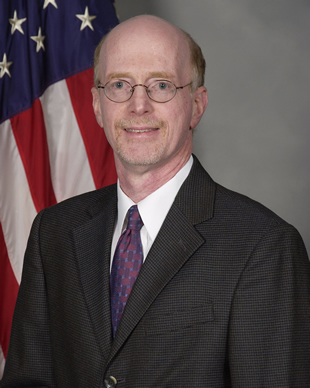Dr. Jaques Reifman makes history as a Presidential Rank Award recipient

One of our own, Dr. Jaques Reifman, Department of Defense High Performance Computing Software Applications Institute, Telemedicine and Advanced Technology Research Center, senior research scientist has been selected to receive the prestigious award early next year. This is the first time that a senior scientist from the U.S. Army Medical Research and Materiel Command has been selected.
The Presidential Rank Awards program is an individual award program granted to U.S. government career Senior Executives and Senior Career Employees, within the OPM-allocated Senior Level or Scientific-Professional community. The Presidential Rank Award honors high-performing senior career employees for sustained extraordinary accomplishments, according to the OPM Web site.
"In my 37 years serving in the Army or working for the Army, I have seen an awfully lot of very dedicated and patriotic people but never have seen anybody who works so hard, and is so thorough, and demands so much from himself as does Dr. Reifman. Of course, the other basic qualities that enabled his achievements are superb intelligence, uncanny resourcefulness, dogged determination, a rare sense of scientific purpose and rigor, impeccable integrity, and active participative 'do-as-I-do' leadership," said Dr. Gary R. Gilbert TATRC's chief Knowledge Engineering Group at MRMC.
Reifman said that Gilbert has been very supportive...through thick and thin.
Gilbert said, "Of course, it is always rewarding to know that the effort you expend to nominate a highly deserving individual for such a prestigious award ends in success, but in the case of Dr. Reifman it is not surprising, but is almost expected."
"It's nice to be recognized with the Presidential Award. It provides an external validation of our achievements. I'm thankful to have had the opportunity at the MRMC as well as the trust from senior leadership and the intellectual freedom to build this unique capability for the Army," said Reifman.
The capability Reifman is referring to is the computation biology research capability that involves research intersecting physical sciences, computer sciences, and life sciences, including biology, physiology, and medicine. Computational biology research cuts across all research missions of the MRMC by helping identify potential drug and vaccine candidates and design diagnostic assays, and by developing automated algorithms for diagnosis and triage of combat casualties, improve management of soldier sleep/wake cycles, and prevent heat-related illnesses. He started working at MRMC in 2001.
Reifman, an 8 1/2 year MRMC veteran, has built this capability from the ground up working on a "shoestring budget" that has now snowballed into a multi-million dollar institute, consisting of a staff of 40 of which 75% has a doctoral degree.
"The computational models we develop in the Institute help us make more educated guesses and generate hypothesis so that we can reduce the number of laboratory experiments one-thousand-fold and, potentially, minimize animal use. Some of our models are executed in parallel, simultaneously using hundreds of computers, which allow for much faster and efficient calculations. With such high performance computing, calculations that used to take 9 years now take 9 weeks and computations that used to take months now take hours," said Reifman.
"Since we hired Jaques, he has done such a truly amazing job in building a world-class capability in computational biology that he deserves this recognition. It is the military accompaniment to the Flemming Award he was given earlier this year," said Dr. John Glenn, SES, Principal Assistant for Research and Technology at MRMC.
Reifman's Institute works with the Medical Research Institute of Infectious Diseases, Walter Reed Army Institute of Research, Research Institute of Environmental Medicine, Medical Research Institute of Chemical Defense, and Walter Reed Army Medical Center as well as non-medical Army labs, Navy, and Air Force, and academia.
"With our computational capabilities, we are supporting the Combat Casualty Care program by developing decision-support algorithms based on artificial intelligence. We can automatically determine based on standard vital signs whether or not a trauma patient has major hemorrhage. Right now, this unique capability is being field trialed with patients en route to a Harvard University hospital. We are also supporting the Command's Military Operational Medicine program. We can monitor an individual's body core temperature by having them ingest a temperature pill. This information can then be used to predict the individual's core temperature 20 minutes into the future and potentially prevent a heat stroke. Similar technology is being developed to predict the glucose levels of individuals with type 1 and type 2 diabetes," said Reifman.
 An official website of the United States government
An official website of the United States government
 ) or https:// means you've safely connected to the .mil website. Share sensitive information only on official, secure websites.
) or https:// means you've safely connected to the .mil website. Share sensitive information only on official, secure websites.


